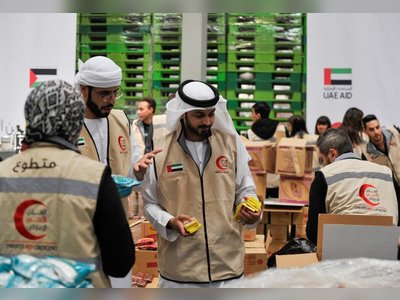
Global Hunger Crisis Highlights Need for Urgent Action
As one in nine people face food insecurity, the World Food Programme intensifies efforts amid complex crises.
The World Food Programme (WFP), an agency of the United Nations, is currently navigating a significant global hunger crisis, with estimates indicating that one in nine individuals worldwide do not have sufficient food to eat.
Established in 1961, the WFP's mission is to combat hunger and provide emergency food assistance, particularly in areas experiencing conflict and instability.
The organization has been instrumental in executing the Zero Hunger Pledge, a commitment made by the international community in 2015 aimed at eradicating world hunger by the year 2030, which is one of the 17 Sustainable Development Goals.
In recent years, the WFP has reported that nearly two-thirds of its operations occur in conflict zones, where the prevalence of malnutrition is significantly higher—more than three times the rates found in peaceful countries.
As of now, WFP operations involve an extensive logistical network, utilizing approximately 5,000 trucks, 20 ships, and 70 aircraft daily to deliver crucial food supplies.
Beyond emergency assistance, the WFP also focuses on long-term solutions, providing school meals to around 25 million children in 63 nations while collaborating with local communities to enhance nutrition.
The organization seeks to source supplies from developing nations whenever possible, aiming to reduce transportation costs and stimulate local economies.
The funding structure of the WFP relies heavily on voluntary contributions from various stakeholders, including governments, private sectors, and philanthropic donations.
This approach allows the WFP to maintain its threshold for extending its reach and addressing the complex hurdles associated with global food security.
The ongoing challenges underscore the pressing need for continuous international collaboration and support as the WFP works towards its mandate to alleviate hunger worldwide.
Established in 1961, the WFP's mission is to combat hunger and provide emergency food assistance, particularly in areas experiencing conflict and instability.
The organization has been instrumental in executing the Zero Hunger Pledge, a commitment made by the international community in 2015 aimed at eradicating world hunger by the year 2030, which is one of the 17 Sustainable Development Goals.
In recent years, the WFP has reported that nearly two-thirds of its operations occur in conflict zones, where the prevalence of malnutrition is significantly higher—more than three times the rates found in peaceful countries.
As of now, WFP operations involve an extensive logistical network, utilizing approximately 5,000 trucks, 20 ships, and 70 aircraft daily to deliver crucial food supplies.
Beyond emergency assistance, the WFP also focuses on long-term solutions, providing school meals to around 25 million children in 63 nations while collaborating with local communities to enhance nutrition.
The organization seeks to source supplies from developing nations whenever possible, aiming to reduce transportation costs and stimulate local economies.
The funding structure of the WFP relies heavily on voluntary contributions from various stakeholders, including governments, private sectors, and philanthropic donations.
This approach allows the WFP to maintain its threshold for extending its reach and addressing the complex hurdles associated with global food security.
The ongoing challenges underscore the pressing need for continuous international collaboration and support as the WFP works towards its mandate to alleviate hunger worldwide.









